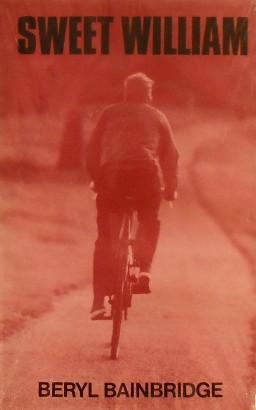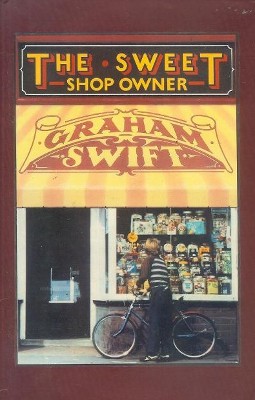
Neil Patrick Jordan is an Irish film director, screenwriter, novelist and short-story writer. He first achieved recognition for his short story collection, Night in Tunisia, which won the Guardian Fiction Prize in 1979. After a stint working at RTÉ, he made his directorial debut with the 1982 film Angel.

Brian O'Nolan, his pen name being Flann O'Brien, was an Irish civil service official, novelist, playwright and satirist, who is now considered a major figure in twentieth-century Irish literature. Born in Strabane, County Tyrone, he is regarded as a key figure in modernist and postmodern literature. His English language novels, such as At Swim-Two-Birds and The Third Policeman, were written under the O'Brien pen name. His many satirical columns in The Irish Times and an Irish-language novel, An Béal Bocht, were written under the name Myles na gCopaleen.
Patrick McCabe is an Irish writer. Known for his mostly dark and violent novels set in contemporary—often small-town—Ireland, McCabe has been twice shortlisted for the Booker Prize, for The Butcher Boy (1992) and Breakfast on Pluto (1998), both of which have been made into films.
The Rooney Prize for Irish Literature was created in 1976 by the Irish American businessman Dan Rooney, owner and chairman of the NFL Pittsburgh Steelers franchise and former US Ambassador to Ireland. The prize is awarded to Irish writers aged under 40 who are published in Irish or English. Although often associated with individual books, it is intended to reward a body of work. Originally worth £750, the current value of the prize is €10,000.

Dublin: Foundation (2004) is a novel by Edward Rutherfurd first published in 2004 by Century Hutchinson and then by Seal Books and Doubleday Canada.

Sombrero Fallout: A Japanese Novel is Richard Brautigan's seventh novel, completed in 1975 it was published the following year.

Ireland: Awakening (2006) is a novel by Edward Rutherfurd first published in 2006 by Century Hutchinson. It concludes the two-part series known as The Dublin Saga.

Sweet William is a 1975 novel written by Beryl Bainbridge, it was made into a 1980 film of the same name for which Bainbridge wrote the screenplay.

Ronan Sheehan is an Irish novelist, short story writer and essayist. He was an early member of the Irish Writers' Co-operative and its Secretary from 1975 to 1983. He received the Rooney Prize for Irish Literature in 1984. Until 2005 he was a practising lawyer in Dublin, specialising in copyright law. He was the General Editor of the Catullus Project to translate works by Catullus into English and Irish.

Close to Home, is the second novel by English author Deborah Moggach, first published in 1979 by Collins. It is mentioned in the 6th edition of the Bloomsbury Good Reading Guide. Like her first novel You Must Be Sisters it is semi-autobiographical and relates to a time when she was living in Camden Town with two small children, a husband who was often away on business, and struggling to write a novel.
The Kerry Group Irish Novel of the Year Award is an annual award for Irish authors of fiction, established in 1995. It was previously known as the Kerry Ingredients Book of the Year Award (1995–2000), the Kerry Ingredients Irish Fiction Award (2001–2002), and the Kerry Group Irish Fiction Award (2003-2011).

The Christmas Tree is Irish author Jennifer Johnston's sixth novel, first published in 1981 by Hamish Hamilton. It has been suggested by The Irish Times as being her finest work, and was chosen by the Irish Independent to be published as one of the books its "Irish Women Writers" collection. It is one of U.S. writer Lionel Shriver's favourite books and was adapted for television in 1986.

Life-Size is the debut novel by South African author Jenefer Shute, published in 1992 and is a Literary Guild selection. It is a first person account of Josie, a twenty-five-year-old graduate in economics, who has anorexia and is hospitalised in an attempt to stop her from starving herself to death.

The Sweet-Shop Owner is the debut novel of English author Graham Swift. It was published in 1980 to largely favourable reviews.

The Mosquito Coast is a novel by author Paul Theroux. Published in 1981, it won the James Tait Black Memorial Prize and was the Yorkshire Post Novel of the Year.
John Barclay Pick, often credited as J.B. Pick, was an English poet, novelist, and biographer. He was a Quaker and a conscientious objector during the Second World War, serving in the Friends' Ambulance Unit and then as a coalminer.
Mary O'Donnell is an Irish novelist and poet, journalist, broadcaster and teacher.
Irish Gothic literature developed in the eighteenth and nineteenth centuries. Most of the writers were Anglo-Irish. The period from 1691 to 1800 was marked by the dominance of the Protestant Ascendancy, Anglo-Irish families of the Church of Ireland who controlled most of the land. The Irish Parliament, which was almost exclusively Protestant in composition, passed the Penal Laws, effectively disenfranchising the Catholic majority both politically and economically. This began to change with the Acts of Union 1800 and the concomitant abolition of the Irish Parliament. Following a vigorous campaign led by Irish lawyer Daniel O'Connell, Westminster passed the Roman Catholic Relief Act 1829 removing most of the disabilities imposed upon Catholics.












